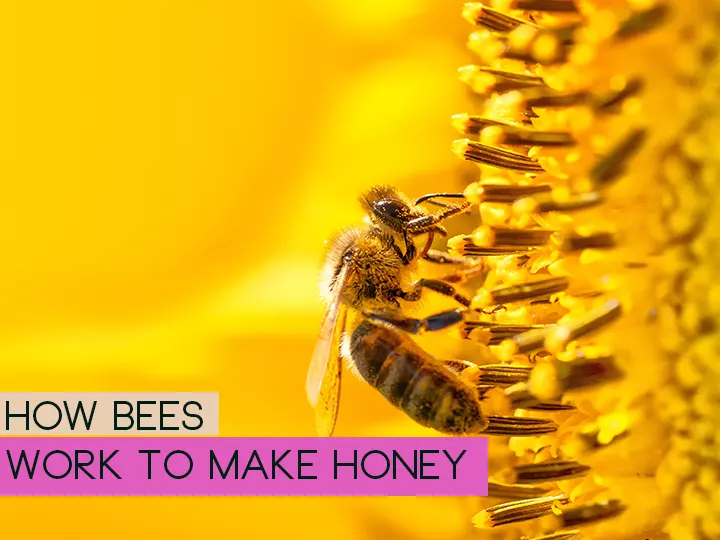
Bees are fascinating insects that play a crucial role in pollination and honey production. Here is a detailed explanation of how bees work to make honey:
Pollination: The first step in honey production is pollination, which is the process of transferring pollen from the male parts of a flower to the female parts. This allows the flower to produce seeds and fruits. Bees are important pollinators as they collect nectar and pollen from flowers, which they then use to make honey.
Nectar collection: Bees collect nectar from flowers using their long tongues and store it in a special stomach called the honey stomach. As they fly from flower to flower, they also collect pollen on their bodies, which they transfer to other flowers, helping to pollinate them.
Nectar processing: Once the bees return to the hive, they transfer the nectar from their honey stomachs to other worker bees. These bees then process the nectar by regurgitating it and passing it from bee to bee. During this process, enzymes are added to the nectar, which begin to break down the sugars.
Honey storage: The processed nectar is then stored in the honeycomb, which is made up of hexagonal wax cells. The bees fan their wings to evaporate some of the water from the nectar, which thickens it into honey. Once the honey has reached the desired consistency, the bees seal the cells with wax to preserve it.
Honey harvesting: The bees store honey in the comb for their own use during the winter months. When the beekeeper wants to harvest honey, they will remove the honeycomb frames from the hive and use an extractor to remove the honey from the comb.
Pollination: After the honey is harvested, the beekeeper will return the empty comb to the bees, who will then refill the comb with nectar and begin the process again.
Honey production: The process of bees making honey is a natural process that requires the work of many bees and the cooperation of many flowers. Honey production is an essential part of the ecosystem, helping to support both the bees and the plants they pollinate.
